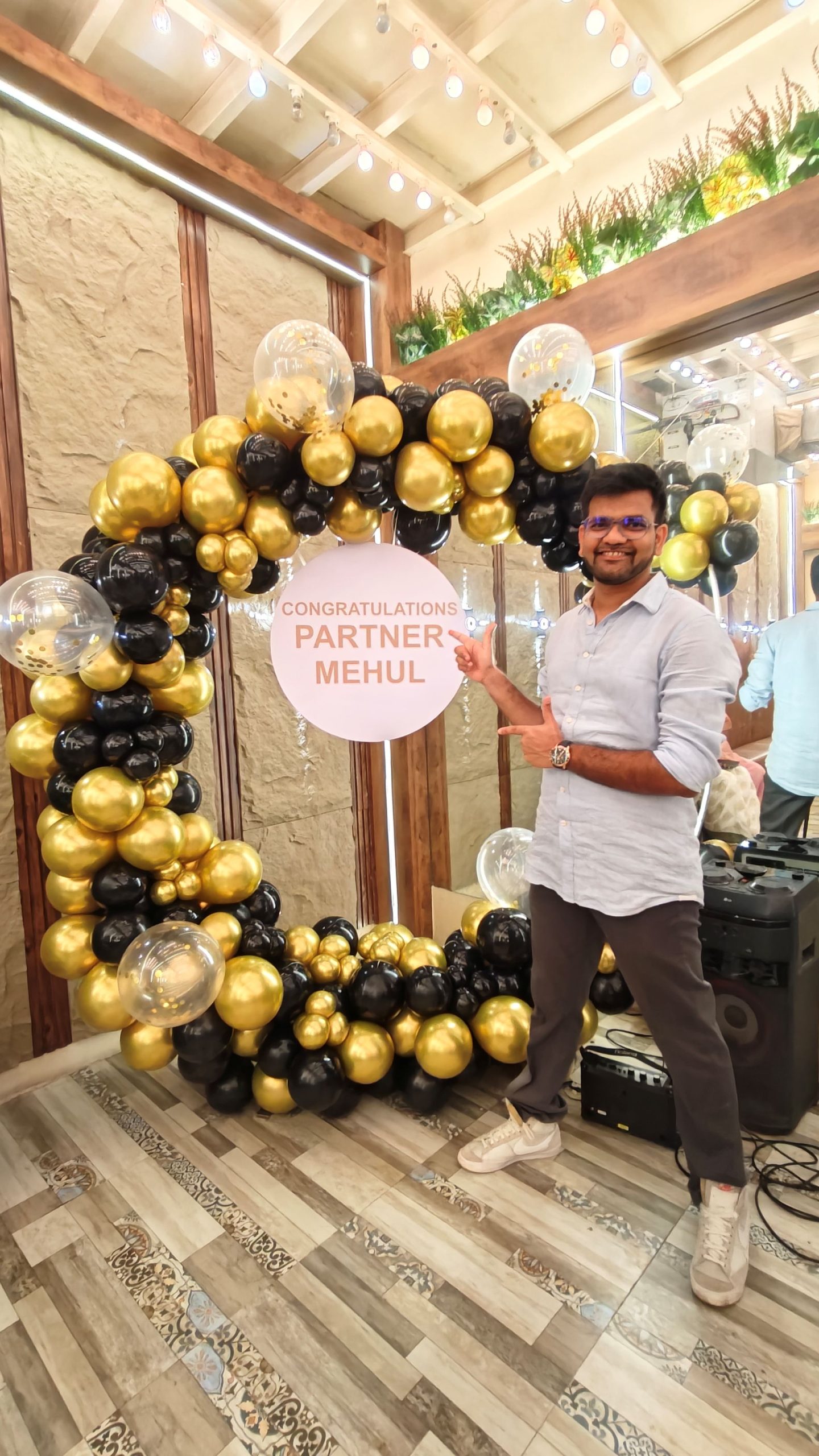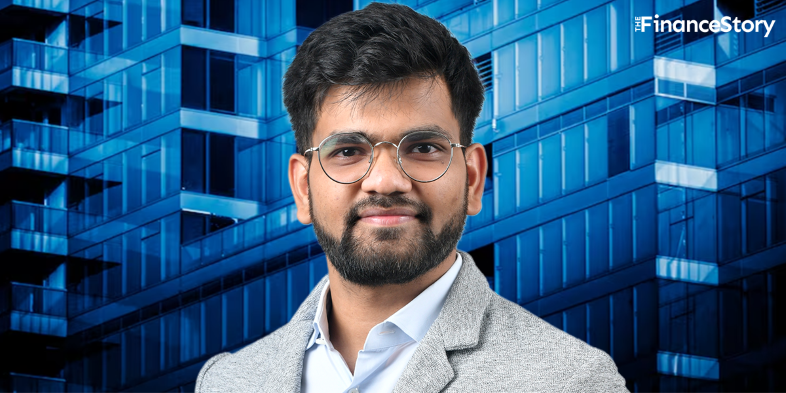- Hi, I’m Mehul Jain, Partner for International Tax Services at Price Waterhouse & Co LLP.
- In 2015, I walked into the firm as an Assistant Manager, with a crazy vision to become a Partner in 10 years.
- In 2025, at 32, I achieved it, and it wasn’t a coincidence.
- Hard work, solid mentor are non-negotiable, but…Clarity and the discipline to resist every shiny 2x job offer mattered most.
Back story
In 2011, as a CA intern, I was dropping CVs across Fort, Mumbai, desperately looking for a break.
My personal situation required an internship that offered a competitive salary.
One afternoon, I walked into BMR Advisors, a boutique tax firm and left my CV at the reception.
A few days later, I got a call to join their International Tax team.
That’s how I stumbled into international tax, and that one door completely changed my life.
Here, I was suddenly surrounded by the sharpest minds, most of them ex-Big 4 or ex-Arthur Andersen.
Many of my colleagues had fast-tracked to Partner in under 10 years; it lit a spark in me.
Fast forward to 2015
I joined the International Tax team at Price Waterhouse & Co LLP, India, as an Assistant Manager.
But truthfully, I was unsure.
Would the Big 4 mean I am “just another employee” in a sea of thousands?
Would I lose the entrepreneurial energy I had tasted at BMR?
And the bigger question: Could I still become a Partner in 10–12 years here?
In early 2025, exactly a decade later, I made Partner.
Was there a formula? Maybe:
- Being at the right place
- Working with the right people
- Excelling in a profile that I enjoy and love

Reaching partner at 32? What worked
Luck plays a part, sure. But here’s what really helped me:
Taking on extra responsibilities!
In a large firm, visibility is everything and visibility doesn’t come from doing what’s expected. It comes from going the extra mile.
You have to step out of your comfort zone; there are no shortcuts here!
While my core was International Tax, I said yes to a lot of hard stuff:
- GST transitions
- Tough transfer pricing assignments
- Managing large-scale projects
I absorbed everything the platform had to offer: geographies, practices, and client types.
And then came what I call the extraction phase: taking all those diverse experiences and channelling them into something bigger.
I could now deliver more comprehensive solutions, connect the dots faster, and add real value wherever it was required.
Building client trust
The second most important factor is “earning your clients’ trust” in you and the quality of your work.
Equally crucial is building long-term relationships by staying with them over time.
Building a team
This journey started 5–6 years ago.
Learning to delegate, coach juniors, and inspire them prepared me for leadership. It also made me more capable of taking on complex assignments.
Today, I lead a team of 8–10 outstanding professionals.
Asking for opportunities
Let me share an interesting anecdote.
Around 2018, Price Waterhouse & Co was launching a technology upskilling program.
It was a big deal that the program selected only a handful of consultants to get hands-on training in automation and Analytics.
I applied.
I didn’t get in.
For two days, I sulked.
Then, I did something I’d never done before: I asked why.
To my surprise, the panel reconsidered.
That yearlong program exposed me to emerging technologies, data-led consulting, and Analytics-based delivery models years before the buzz hit mainstream.
That decision changed my career.
I stopped seeing myself as “just a tax guy.” I became a problem solver.
Patience
In 2017, I expected a promotion. Delivered, worked long nights, led tough projects.
Everyone told me, “You’re on track.”
Then came the email: someone else got promoted.
My mentor told me, “Mehul, one year more won’t matter. One less might.”
At the time, I didn’t want to hear it. But looking back, it was exactly what I needed.
I doubled down. I picked up the toughest assignments and “focused on building depth instead of chasing designations”.
Having a strong “Anchor”
When charting out your career, it is very, very, very important to identify an anchor.
We all have mentors, but an anchor is someone who stands by you, with whom you have full faith and trust and who reciprocates.
I’ve had great mentors, but one has been with me for 14 years he is my anchor.
He understood my journey, guided me, and ultimately sponsored me for partnership.
Having someone who’s climbed the same mountain you want to is priceless.
What made a big difference: Clarity!
A decade ago, I found myself at a crossroads:
“Do I want to become a Partner at a Big 4 firm, or aim to be a CFO or CEO in industry?”
I chose consulting. That clarity shaped everything.
I declined bigger paychecks
Then…Over the years, as you excel in your job, you get noticed by headhunters.
The offers came in thick and fast. Some were almost double my pay at the time.
Tempting? Absolutely.
But every time I looked at them, I asked myself: “Will this take me closer to where I want to go, or just distract me with money and titles?”
Once you have that clarity, everything else becomes noise.
I’ve done exactly that for the past fourteen years — and it has paid off.
Now, when did the firm consider me “Partner material”?
So, here’s the truth nobody tells you:
“You don’t become a Partner the day you get the title; you become one years before.”
You have to be already acting like one:
- Leading client conversations
- Running assignments
- Owning outcomes years before anyone formally puts your name on a list.
Formal process?
The official promotion journey typically lasts about a year.
It starts with leadership asking: “We think you might be ready. But are you ready to take on that responsibility?”
From there, it’s rigorous:
- Every file, project, and client relationship is reviewed.
- Inputs are taken from peers, juniors, and clients.
- Leadership, track record, and readiness are dissected in detail.
Also read: EY Partner quits, builds a winning tax firm – The new wave of Big 4 breakaways!
Becoming a Big 4 Partner in India. What changes?
In fact, if your day-to-day work changes drastically the moment you become a partner, then maybe you weren’t ready for it.
For the past year or two, you should already have been operating like a Partner.
Responsibilities now include:
- Accountability for clients, team, and firm culture
- Access to strategic tables and top leaders
- Yes, having your own cabin is a small perk!
Also read: PwC triple revenues in India by 2030. Create 20,000 new jobs
On office politics
Truthfully, I’ve never been a victim, so I’m not the right person to answer.
My energy has always gone into performance, relationships, and integrity.
Most important: I have always worked for a good boss/leader, and this has genuinely made a huge difference!
How is consulting evolving with AI?
In my view, consulting is evolving along three key dimensions:
- Managed Services: AI will automate routine compliance, delivering faster and cheaper. Consultants will focus on higher-value work.
- Super Specialisation: AI can generate outputs, but nuanced judgment and deep expertise will remain irreplaceable. Specialists will shine.
- Super Generalisation: The ability to connect dots across tax, strategy, finance, and technology, integrating AI effectively, will be a huge differentiator.
That’s why I believe everyone needs an AI strategy for their career.
My own strategy?
- Stay relevant in at least one of those three buckets.
- And the second thing is – Do more with less.
Wrapping up…
In 2017–18, I explored jobs abroad. A few offers came. My family wasn’t ready, so I stayed.
Looking back, I’m grateful. Because today, India is the century’s biggest story.
As India grows, tax consultants are at the centre of policy, planning and deployment, and that’s your opportunity to build a strong foundation.
With AI, the market for consulting will just get bigger. Companies will spend more on fractional expertise, which is consulting 101.
Big 4 or boutique, the market is booming!
FAQs on Consulting & Big 4 Careers
Q: How long does it take to become a Partner at a Big 4?
A: Typically, it takes 15–18 years of consistent performance to become a Partner at a Big 4 firm.
The journey isn’t just about technical expertise; it’s about building trust with clients, developing leadership skills, and driving revenue. In India, some professionals make it faster due to the rapid growth of GCCs and consulting demand, but it still requires long-term commitment.
Q: What are the challenges in a consulting career?
A: Consulting is rewarding but not for the faint-hearted. Challenges include:
- Long hours and tight client deadlines.
- Constant upskilling — what worked last year may not work today.
- Pressure to deliver impact — clients expect tangible ROI, not just advice.
- Travel and burnout (though hybrid work has reduced this)
Yet, those who thrive on problem-solving and client interaction often find the grind worth it.







